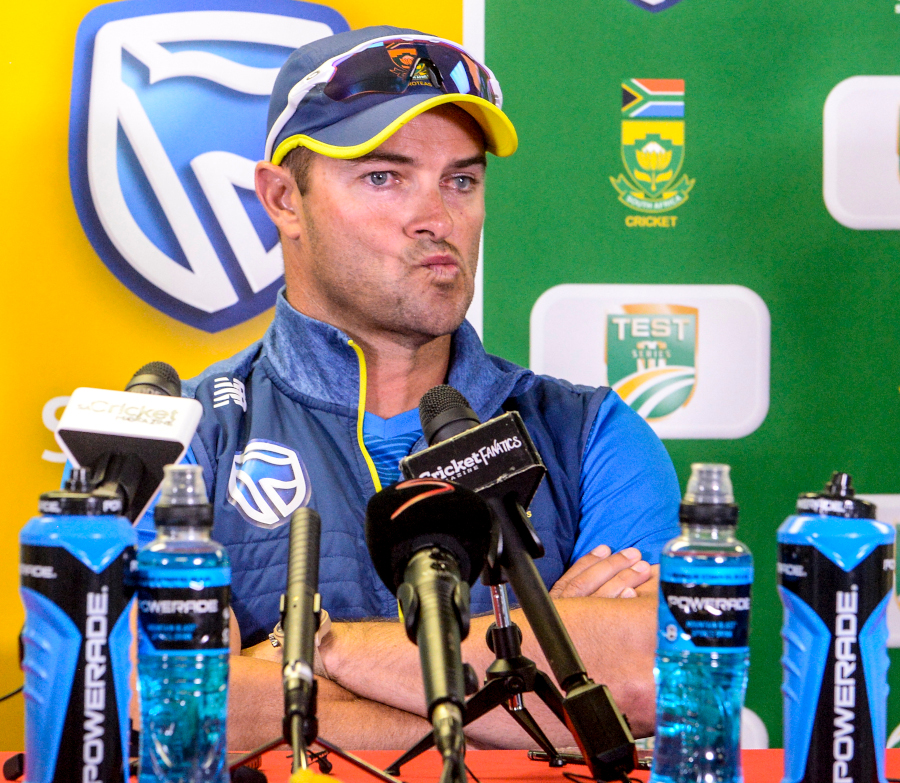Picking a generational talent like Kyle Verreynne whenever he is available is a no-brainer, even if it means he bats out of position. Mark Boucher is failing in the most obvious selection of them all and it’s sickening that he defends it, writes RYAN VREDE.
I read with interest Proteas head coach Boucher’s rationale for Verreynne’s omission from the T20I side. This despite the kid’s domestic form, which has been excellent for three consecutive seasons, his statement innings in the final ODI of the series against Pakistan, and his performances when granted opportunities previously.
As a starting point, Boucher asserted that while he knew Verreynne did well in the aforementioned ODI ‘… T20 cricket is a bit different’. By that standard, there are a clutch of players who play both white-ball formats with different degrees of success, who then also shouldn’t be selected.
Boucher further explained that Verreynne was picked as backup wicketkeeper to Heinrich Klaasen in a squad that was handed to him.
He argued that he is just one of four selectors, insinuating that matters were somewhat out of his control, and asserted that Verreynne wasn’t selected because he isn’t in line for the No 3 spot, which is what became available when Rassie van der Dussen was injured.
Instead, Wihan Lubbe, identified as the next in line back in February after ‘… the computers were brought out and we considered the aggressive brand we want to play’ was picked.
This assumes that in order to play T20I cricket for South Africa, one of the country’s most gifted and prolific young batsmen will have to wait for Klaasen, who has a national contract, to either suffer a terrible run of form or be injured.
That picture is even bleaker when you consider that outside an IPL window, and by the rationale Boucher used, Verreynne will have to wait for either Quinton de Kock and Klaasen to be injured or dropped before he gets a consistent crack in white-ball cricket.
One of the most exciting batting talents to emerge since AB de Villiers is effectively a glorified drinks carrier and will be for the foreseeable future, but for a complex series of circumstances.
Boucher further explained that Verreynne ‘… is growing and we believe he can still add to a couple of parts of his game and become a world-class performer in all three formats’.
How does Verreynne add ‘those parts’ when he isn’t close to being picked for any of the three formats Boucher envisions him becoming ‘a world-class performer’ in? One can’t gain international competency at a domestic level. Indeed, Verreynne’s international call-up is based on exceptional competency at domestic level over a prolonged period of time.
So, the next logical step in his career is to adapt to the demands of international cricket. But he won’t play international cricket outside an IPL window, despite making a compelling case for selection almost every time he has been granted an opportunity.
I understand there has to be a structured and a relatively emotionless approach to selection. Under normal circumstances I’d support the approach the selectors followed in picking Lubbe over Verreynne. These aren’t normal circumstances. Verreynne has consistently shown himself to be worth the investment, even if it means he is accommodated at a batting position that veers from the plan. Lubbe hasn’t. He may in time, but as it stands he doesn’t have a case that trumps Verreynne’s.
It isn’t an emotional decision, it is a sound cricket one.
Verreynne may be exposed as lacking the temperament to build a long international career. But he needs to be given the opportunity to succeed or fail. It is disingenuous to continue to pay lip service to his talent, then leave that talent rotting on the bench when he could be easily accommodated.
Boucher has lost four series on the bounce across all formats. He has problems. He is failing. He does himself no favours by defending a selection decision that should be obvious for any competent international cricket coach.







